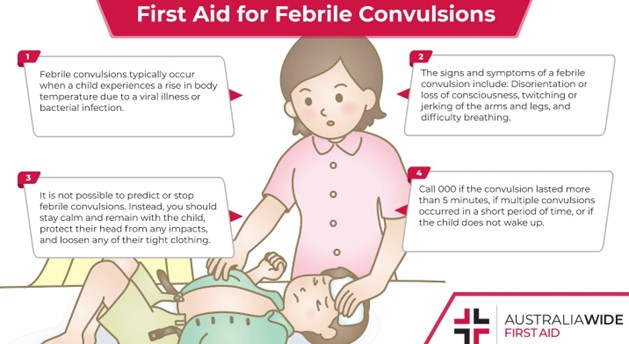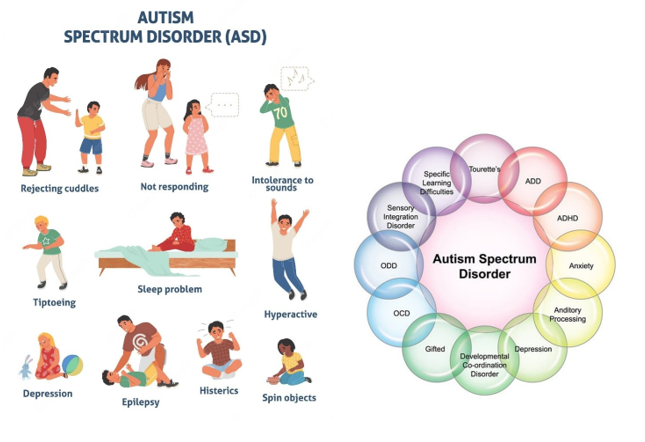The parents of a 14-month-old child who is hospitalized due to febrile seizures tell the nurse that they fear their child will have lifelong seizures. Which information should the nurse convey to these parents?
Ibuprofen should be used prophylactically to prevent febrile seizures.
Provide the child with a sponge bath for temperatures over 100.6°F (38.1°
Reassure the parents that febrile seizures decrease as the child grows older.
Avoid excessive visual stimuli because it can precipitate seizure activity.
The Correct Answer is C
The nurse should reassure the parents that febrile seizures typically decrease in frequency as the child grows older. Most children outgrow febrile seizures by the age of 5 years.
Ibuprofen is not typically used prophylactically to prevent febrile seizures.
Providing the child with a sponge bath for temperatures over 100.6°F (38.1° C) can help to lower the fever, but it will not necessarily prevent febrile seizures.
Avoiding excessive visual stimuli is not necessary for children with febrile seizures, as this type of seizure is triggered by a fever rather than visual stimuli.

Nursing Test Bank
Naxlex Comprehensive Predictor Exams
Related Questions
Correct Answer is A
Explanation
Answer: A. Biopsy may rupture the encapsulated tumor and cause the cancer cells to spread.
Rationale:
A) Biopsy may rupture the encapsulated tumor and cause the cancer cells to spread: This is the primary reason why surgery is performed before a biopsy in cases of Wilms tumor. The tumor is usually encapsulated, and performing a biopsy could risk breaking the capsule, leading to the dissemination of cancer cells into surrounding tissues, which can worsen the prognosis.
B) Metal clips are surgically applied at the tumor site for exact marking for radiation: While marking the tumor site for radiation is important, it is not the primary reason for performing surgery before a biopsy. The main concern is about the potential for cancer cell spread during a biopsy procedure.
C) Surgery is necessary to stage the tumor and determine metastasis to other sites: Although staging is a critical aspect of cancer management, the urgency of avoiding tumor rupture and subsequent spread is more pressing in this context. The surgery may assist in staging, but that is not the primary reason for immediate surgical intervention.
D) The surgery provides a visualization of other pathology and dysfunction of the kidney: While the surgical procedure may provide additional information about the kidney's condition, the most significant concern regarding Wilms tumor is preventing tumor rupture and the consequent spread of cancer cells, making this option less relevant.
Correct Answer is A
Explanation
Children with autism spectrum disorder may have difficulty with sensory processing, social interactions, and communication, which can contribute to feeding difficulties and failure to thrive. Providing structured meal times is an important intervention to help establish a routine and promote consistency and predictability.
Structured meal times involve setting a specific time for meals and snacks, providing a calm and quiet environment, and limiting distractions. This can help the child focus on the task of eating and reduce sensory overload that may interfere with feeding. The nurse should also ensure that the child is seated comfortably and at an appropriate height for feeding.
Offering food even if disinterested (B), incorporating play during meals (C), and allowing multiple food choices (D) are not necessarily helpful interventions for a toddler with autism spectrum disorder and failure to thrive. Offering food when the child is not interested may reinforce negative feeding behaviors and can contribute to further feeding difficulties. Incorporating play during meals may distract the child from the task of eating and can be counterproductive. Allowing multiple food choices can be overwhelming for the child and may not promote a consistent and structured feeding routine.
Therefore, the nurse should prioritize providing structured meal times as an important intervention for promoting feeding and growth in a toddler with autism spectrum disorder and failure to thrive.

Whether you are a student looking to ace your exams or a practicing nurse seeking to enhance your expertise , our nursing education contents will empower you with the confidence and competence to make a difference in the lives of patients and become a respected leader in the healthcare field.
Visit Naxlex, invest in your future and unlock endless possibilities with our unparalleled nursing education contents today
Report Wrong Answer on the Current Question
Do you disagree with the answer? If yes, what is your expected answer? Explain.
Kindly be descriptive with the issue you are facing.
